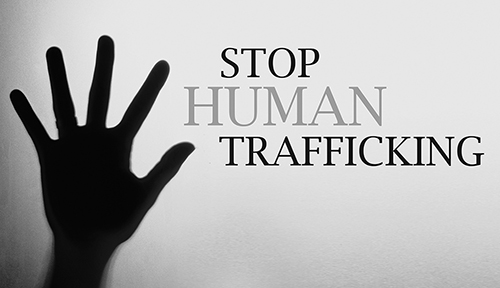 I recently came across a couple of articles in the New York Times that really left me feeling disheartened, kind of frustrated and definitely sad. They both focused on human trafficking trends, specifically the use of online classifieds sites as a forum for luring, pimping and selling young girls into the sex trade.
I recently came across a couple of articles in the New York Times that really left me feeling disheartened, kind of frustrated and definitely sad. They both focused on human trafficking trends, specifically the use of online classifieds sites as a forum for luring, pimping and selling young girls into the sex trade.
The first, titled “Online Sex Trade Flourishing Despite Efforts to Curb It,” left a sting in me, not just because I’ve been behind many efforts to curb the use of online ad sites for soliciting sexual encounters but more because police seem to have a “love-hate” attitude about the online sex ads.
What can anyone possibly love about this online sex trade? Yes, it’s a sad state of society that this modern-day slavery exists, but police explain that online ads have given them a new tool to learn more about this once-underground world and “crack the code” that pimps and johns use to set-up sexual encounters. While I won’t dispute the need for police to be up-to-speed on the latest techniques and technologies, we can’t lose sight of the fact that every ad that law enforcement takes time to study is an ad for a real person trapped in this horribly violent world.
The second article, an Op-Ed titled “Where Pimps Peddle Their Goods,” honed in on the sites that turn a blind eye on these sorts of advertisements, specifically Backpage.com, an online classifieds operation owned by Village Voice Media. For many companies, a scathing set of words in the New York Times would be devastating but the folks at Backpage are defiant and defensive about all of it. After all, they’re trying to protect their bread-and-butter.
The AIM Group, a research firm, reports that online prostitution advertising on five U.S. web sites generated at least $3.1 million in February 2012, a jump of nearly 10 percent from February 2011. Of that, nearly 80 percent – or about $2.5 million – came from Backpage. On an annual basis, the AIM Group estimates at least $36.6 million in advertising revenue, with more than two-thirds – $26 million – generated by Backpage.
As the owner of Geebo, an online classifieds site that doesn’t host a forum for “personals” ads, I’m not reaping the financial rewards that come from these sorts of ads – but my conscience and I are sleeping well at night. I killed the personals section on Geebo in September 2010. For some time now, I’ve been standing out on that limb all alone, asking my industry counterparts to join me in removing personals ads from their sites but instead being met with a deafening silence in response.
Fortunately, while my industry counterparts stay silent, other groups, such as FAIR Girls, are turning up the heat on these site owners and working to raise awareness about what’s really happening on these sites. Andrea Powell, co-founder and executive director of FAIR Girls, takes exception to the idea that Backpage is being responsible, as it claims, because it says it tries to screen ads for minors and alerts law enforcement when it suspects trafficking.
“As an advocate who also searches for missing and exploited girls, I can say honestly that it is very hard to find sex trafficked girls using the online classified ad sites,” Powell said. “Pimps hide their victims in hotels, use fake names, and make a real effort to keep us from helping their victims escape. Online classified sites like Backpage.com make it easier for pimps, not victims. It’s the new frontier of sex trafficking, and we want to see these sites shut down.”
At the very minimum, it’s time for sites like Backpage to recognize that they’re not helping the problem but instead are making it worse, providing pimps and johns with an anonymous access to an online marketplace for sex. Certainly, I’d welcome any of my competitors in classifieds to shut down but if they want to stay in the game, I’ll just keep asking that they at least kill the area of ads where pimps and johns continue to destroy innocent lives.










Leave a Reply